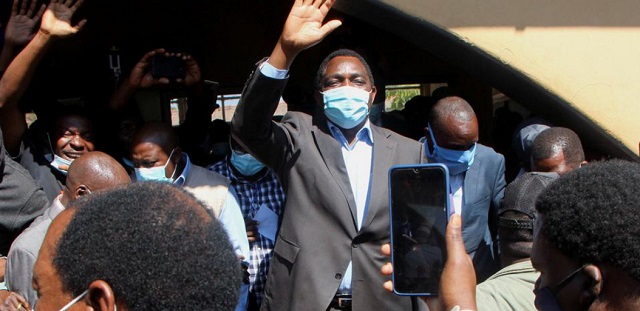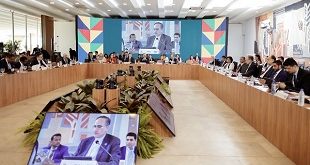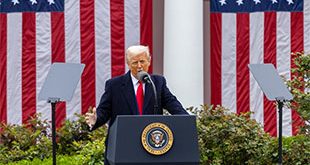
Stalwart Hichilema secures big win in presidential elections
| MICHELLE GAVIN | Late last week, in the midst of deep economic crisis and fears of political violence, the Zambian people took decisive action in favour of a change in course. They turned out in robust numbers to elect veteran opposition politician Hakainde Hichilema of the United Party for National Development (UPND) their next president, enabling him to comfortably clear the threshold required to avert a run-off. A change in leadership does not solve Zambia’s problems, but the resilience and resolve of Zambian institutions and voters is cause for optimism.
Despite a compelling history of democratic transfers of power, a credible election in Zambia was not a foregone conclusion. Years of shrinking political space and a campaign season in which the opposition’s freedom of movement and access to media was curtailed had citizens and observers worried about the integrity of the exercise.
A shutdown of social media platforms on Election Day sent a worrying signal about the state’s desire to maintain control of the political narrative. When early results showed Hichilema’s support dwarfing that of incumbent President Edgar Lungu of the Patriotic Front, Lungu released a statement declaring that the election was not free and fair and that isolated incidents of violence “rendered the whole exercise a nullity.”
But civil society was well organised, with the Christian Churches Monitoring Group fielding a large team of domestic observers to conduct a parallel vote tabulation to ensure the integrity of the result. The Law Society of Zambia weighed in to stiffen the spines of the electoral commission and question the legality of the social media blackouts.
A small number of international observers from the African Union, the Commonwealth, and the European Union were on the ground as well; their initial statements did not support President Lungu’s attempt to cast doubt on the entire exercise. In the end, the Electoral Commission of Zambia played it straight, and on Monday, President Lungu acknowledged their announcement of the winner and conceded the election.
For Hichilema, the challenge ahead is daunting. Youthful Zambian voters turned out to demand change because, for too many, their livelihood prospects are grim. A crushing debt burden and rising inflation mean that securing a bailout from the International Monetary Fund (IMF) will be at the top of the new government’s agenda, and that in turn will require curtailing subsidies on which Zambians have come to rely.
The kind of changes needed in Zambia cannot be effected quickly or painlessly, and the population is impatient for relief. Nor is it a certainty that Hichilema will reverse Zambia’s democratic decline. Long years in the political wilderness of opposition politics do not inoculate leaders from autocratic tendencies when they finally attain power. But alongside the possibility of disappointment is the possibility of progress, and of setting a powerful example in a region where democracy has been on the ropes.
****
This publication is part of the Diamonstein-Spielvogel Project on the Future of Democracy.
 The Independent Uganda: You get the Truth we Pay the Price
The Independent Uganda: You get the Truth we Pay the Price



